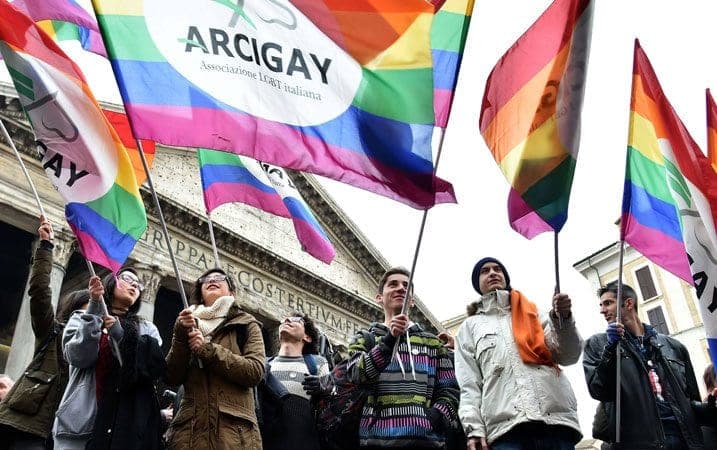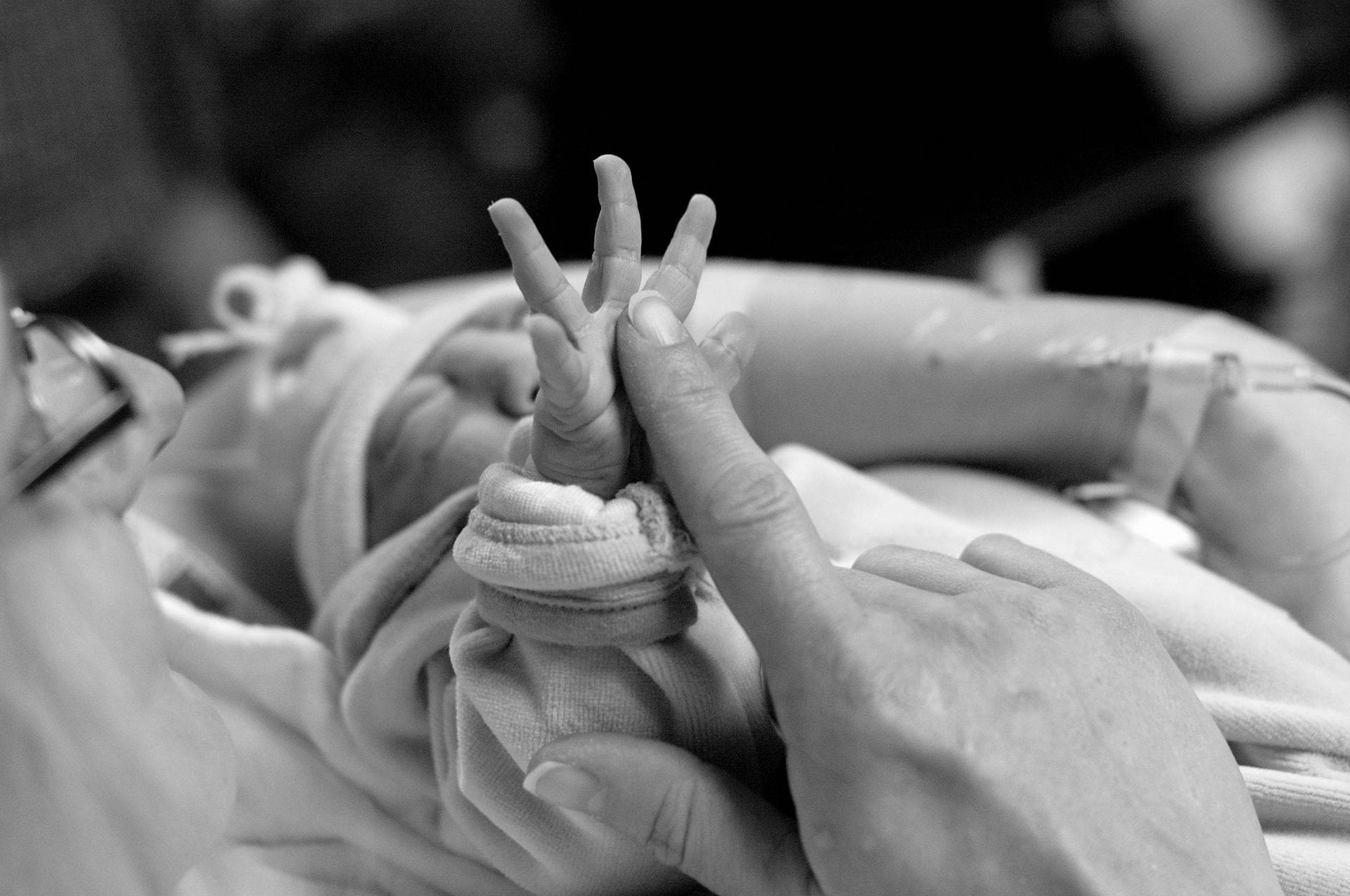ROME — A vast crowd of Italians gathered in Rome’s Circus Maximus Saturday to “defend the family and children,” protesting a proposed law that would establish civil unions for gay couples and grant those couples full adoption rights.
Called “Family Day,” the rally was organized in response to a bill recognizing civil unions the Italian Senate is set to debate next week, after voting was postponed Thursday.
According to the organizers, Italians from all over the country, “from the Alps to Sicily,” traveled to Rome to take part in the event. They estimated the crowd at 2 million, but the Italian newspaper La Stampa put the number at about 300,000.
Organizers defined the gathering as both “secular and also multi-confessional,” noting that while most of those who participated belong to the Catholic Church, there were also other Christians as well as Muslims, Sikhs, and followers of traditional African religions.
“It makes the point that the right of children to have a mother and a father comes before any specific religious creed,” said Massimo Gandolfini, one of the organizers, speaking to TV2000, the network of the Italian bishops’ conference.
Gandolfini, a neurosurgeon, said the rally was “In favor of the human person, not against anyone. People say we’re here to oppose [gays], but that’s a lie and an enormous stupidity.”
“Facing a grave wound to our society, we have the right and the duty to make our voice heard,” he said.
Many in the crowd echoed his sentiments.
Lucca Alesi, 28, who turned out for Family Day with his girlfriend and some friends, told Crux, “I don’t oppose civil unions, but children have the right to a mom and a dad.”
Pointing to a sign against the rally a few feet away comparing the demonstrators to Nazis, he said: “If defending the fact that not even in a lab can a man conceive a baby without a woman, or a woman without a man … if that makes me a Nazi, so be it.”
The sign he was pointing out was actually a collection of letters held by 10 people which read “No to the Gaystapo.”
One man in the small counter-demonstration, who declined to be identified, said he opposed Family Day because participants are trying to “limit our rights.”
Organizers, however, insisted that the event was not designed to oppose anyone’s interests.
“You’re here to carry on your shoulders a message that should be obvious, that marriage is composed of a man and a woman and that a child needs a mother and a father,” said Gianfranco Amato.
“These are concepts that are neither liberal nor conservative, neither secular nor religious,” he said.
The legislation under consideration in parliament was introduced by Socialist Senator Monica Cirinnà. Those rallying in Rome oppose the bill because they believe it equates civil unions to marriage, and also because they believe the adoption provisions will encourage the use of surrogate mothers by gay couples.
Surrogacy is illegal in Italy.
Jennifer Lahl, an American who founded the California-based Center for Bioethics and Culture, warned the crowd that “surrogate motherhood makes women slaves,” and that “women deserve more, children deserve more.”
Family Day was not officially endorsed by the Vatican or the Italian Bishops Conference; it was organized principally by grassroots Catholics.
However, the rally was extensively covered by Vatican Radio and L’Osservatore Romano, the Vatican’s newspaper, and it was broadcast by TV2000, the network of the Italian bishops. Avvenire, the bishops’ newspaper, posted minute-by-minute updates on its web site.
Leading up to Family Day, Italian bishops took contrasting positions on the event, some actively supporting it while others appeared to keep their distance.
Cardinal Angelo Scola of Milan defended it, saying it’s “deeply wrong” to be scandalized by citizens expressing their views. He also said Christians have been “absent from the political and public arena since 1992,” something he believes has to change.
Cardinal Angelo Banagsco, president of the Italian bishops’ conference, said last week that Italy’s constitution must be “appreciated and cherished” and that “there can be no confusion between the family willed by God and every other type of union.”
The prelate also said that no one has a “right” to have a child, “because they are not things to be produced.”
“Children have a right to be raised by a mother and a father. The family is an anthropological fact, not ideological,” Banagsco said.
Italy is the only major Western European country with no legislation for gay rights, prompting a 2015 ruling by the European Court of Human Rights that the country had violated human rights by failing to offer sufficient legal protection.
Some observers believe that this sanction is what prompted center-left Italian Prime Minister Mateo Renzi to push the civil unions law forward.
Justin Nelson, co-founder of the US-based National Gay & Lesbian Chamber of Commerce (NGLCC), warned that Italy will face deep economic repercussions if it fails to legalize civil unions for same-sex couples.
However, Italy is not the only European country that doesn’t allow civil unions or same-sex marriage.
Germany, for instance, created what it called “registered life partnerships,” which provide most but not all of the rights of marriage, in 2001. Attempts to provide rights to registered partners equivalent to marriage, or to legalize marriage for same-sex couples, have not succeeded.
Legal recognition of same-sex couples has not been adopted in 12 European countries, including Poland, Ukraine, and Bulgaria.
“It’s often said that Italy is the taillight of Europe because it’s the only country that doesn’t have legislation for civil unions,” Gandolfini said when addressing the crowd.
“I would say that instead of being the taillight, Italy is the lighthouse that’s showing Europe what civilization is,” he said.
On the eve of Family Day, an Italian association for gay, lesbian, and transsexual Christians launched a social media campaign with the hashtag #chiesaascoltaci, meaning “Church listen to us.”
Andrea Rubera, spokeswoman for the group, explained its aims.
“We are in the year of the jubilee of mercy, and we believe that under the light of this mercy every person, every story, every affection should find a space, with equal dignity, equal respect, without prejudice,” Rubera said.
“Noi Siamo Chiesa,” the Italian branch of the international Church reform movement “We Are Church,” released a statement Wednesday saying that “not every Catholic opposes the law.”
It also implied that the Family Day rally was not supported by Pope Francis, arguing it was organized by the Church’s fundamentalist wing.
But not every gay advocacy group believes Francis is on their side. Some point to a statement Francis made to a group of Vatican judges last week that “there can be no confusion between the family God wants and any other type of union,” widely taken in Italy as a criticism of the civil unions bill.
“This statement from the pope is sure to dishearten many who believed he was open to new thinking about committed, loving relationships between lesbian and gay people,” said Marianne Duddy-Burke, executive director of DignityUSA, a leading organization of Catholics working for equality for LGBT people, in a press release last week.
“This is the clearest statement yet that Pope Francis and other Catholic officials will continue to lead the charge to prevent either civil or sacramental recognition of same-sex relationships,” Duddy-Burke said.


















